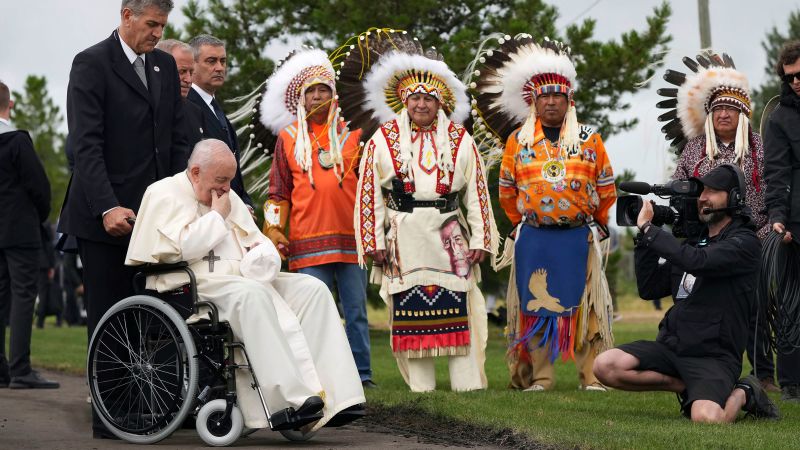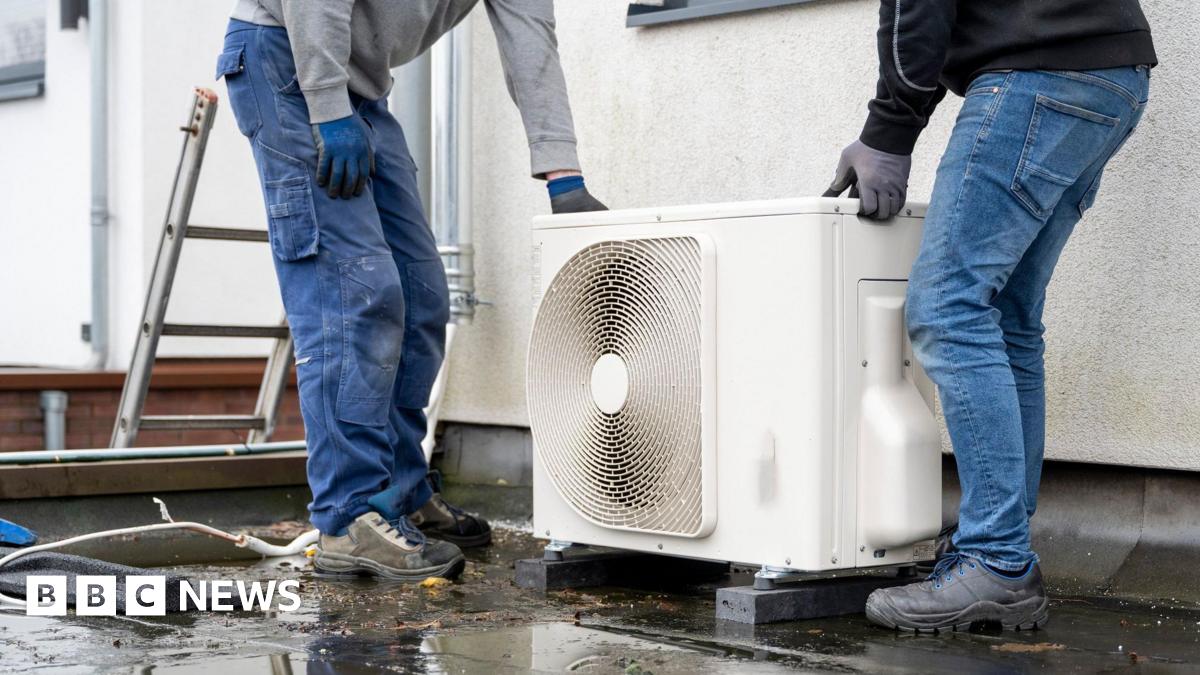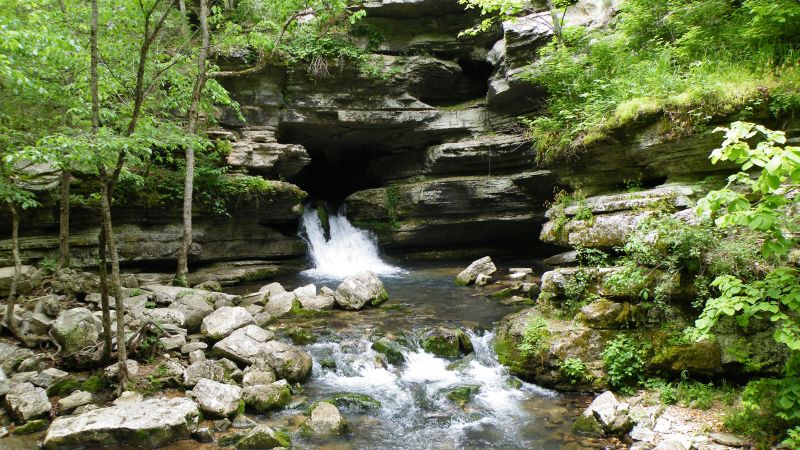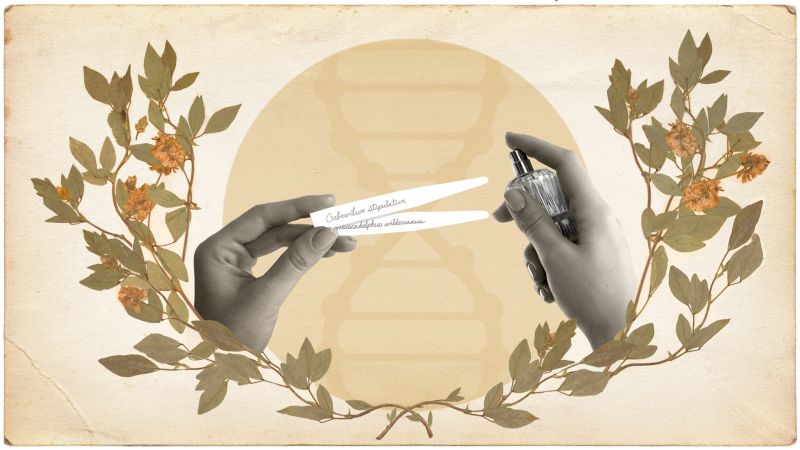The Vatican And Indigenous Rights: A Century-Long Dispute Over Sacred Possessions

Welcome to your ultimate source for breaking news, trending updates, and in-depth stories from around the world. Whether it's politics, technology, entertainment, sports, or lifestyle, we bring you real-time updates that keep you informed and ahead of the curve.
Our team works tirelessly to ensure you never miss a moment. From the latest developments in global events to the most talked-about topics on social media, our news platform is designed to deliver accurate and timely information, all in one place.
Stay in the know and join thousands of readers who trust us for reliable, up-to-date content. Explore our expertly curated articles and dive deeper into the stories that matter to you. Visit Best Website now and be part of the conversation. Don't miss out on the headlines that shape our world!
Table of Contents
The Vatican and Indigenous Rights: A Century-Long Dispute Over Sacred Possessions
The Catholic Church, through the Vatican, holds an immense collection of artifacts, many of which are considered sacred possessions by Indigenous communities worldwide. This accumulation, spanning centuries, has ignited a simmering dispute that continues to escalate as Indigenous voices grow stronger and demand repatriation. For decades, the conversation has been muted, but now, the call for justice and the return of culturally significant items is reaching a crescendo. This article delves into the complex history of this ongoing conflict and explores the challenges and potential pathways towards reconciliation.
A Legacy of Colonialism and Appropriation:
The Vatican's vast collection, housed in the Vatican Museums and other archives, includes countless objects of immense spiritual and cultural significance to Indigenous peoples. These range from ceremonial masks and headdresses to religious artifacts and human remains, often acquired through ethically questionable means during the colonial era. The methods of acquisition—ranging from outright theft and forceful seizure to less overt but equally exploitative practices—are a significant point of contention. The lack of informed consent and the disregard for Indigenous traditions are central to the ongoing grievances.
The Ethical Quandary: Ownership vs. Stewardship:
The Vatican's stance on the issue often centers around the concept of stewardship rather than outright ownership. Arguments are made that the Church has preserved these objects, preventing their destruction or loss. However, Indigenous communities counter that this argument ignores the fundamental right to cultural heritage and the deeply spiritual connection to these items. The idea of stewardship, they argue, is a paternalistic approach that fails to recognize Indigenous sovereignty and self-determination.
Recent Developments and Calls for Repatriation:
In recent years, there has been a growing international movement advocating for the repatriation of cultural artifacts. Several museums and institutions worldwide have begun returning objects to their rightful owners, acknowledging the injustices of the past. Indigenous groups are increasingly leveraging international pressure and legal avenues to demand the return of their sacred possessions from the Vatican. This includes engaging with international bodies like UNESCO and advocating for changes in international laws pertaining to cultural heritage.
Obstacles and Challenges to Repatriation:
The process of repatriation is fraught with complexities. Legal frameworks surrounding cultural heritage vary widely, making the legal process lengthy and often challenging. Establishing provenance—tracing the history and ownership of each object—can be difficult, particularly given the often-opaque records from the colonial era. Furthermore, the sheer scale of the Vatican's collection presents a logistical hurdle of immense proportions.
Potential Pathways Towards Reconciliation:
Moving forward, dialogue and collaboration are crucial. The Vatican could demonstrate a commitment to reconciliation by engaging in meaningful consultation with Indigenous communities, acknowledging past injustices, and establishing transparent processes for evaluating repatriation requests. This involves acknowledging the inherent rights of Indigenous peoples to their cultural heritage and supporting their efforts to reclaim their history and traditions. Creating a joint working group with Indigenous representatives could facilitate a more equitable and mutually respectful process.
The Road Ahead: Hope for a More Equitable Future:
The dispute between the Vatican and Indigenous communities over sacred possessions represents a broader struggle for justice and recognition of Indigenous rights. While the path to reconciliation is undeniably challenging, it is a journey that demands urgent attention. By prioritizing dialogue, acknowledging past wrongs, and actively working towards repatriation, the Vatican has the opportunity to demonstrate a commitment to ethical practices and fostering a more equitable future for Indigenous peoples worldwide. This is not just about returning objects; it's about restoring dignity, recognizing sovereignty, and healing deep historical wounds. The world watches, and the future of cultural heritage depends on it.

Thank you for visiting our website, your trusted source for the latest updates and in-depth coverage on The Vatican And Indigenous Rights: A Century-Long Dispute Over Sacred Possessions. We're committed to keeping you informed with timely and accurate information to meet your curiosity and needs.
If you have any questions, suggestions, or feedback, we'd love to hear from you. Your insights are valuable to us and help us improve to serve you better. Feel free to reach out through our contact page.
Don't forget to bookmark our website and check back regularly for the latest headlines and trending topics. See you next time, and thank you for being part of our growing community!
Featured Posts
-
 California Track And Field Examining The Impact Of Transgender Participation
May 30, 2025
California Track And Field Examining The Impact Of Transgender Participation
May 30, 2025 -
 Roland Garros De Jong Stages Incredible Comeback Against Passaro
May 30, 2025
Roland Garros De Jong Stages Incredible Comeback Against Passaro
May 30, 2025 -
 Are Americans Desensitized To Jailbreaks Examining The Medias Role
May 30, 2025
Are Americans Desensitized To Jailbreaks Examining The Medias Role
May 30, 2025 -
 Americas Fascination With Manhunts Examining The Latest Jailbreak Cases
May 30, 2025
Americas Fascination With Manhunts Examining The Latest Jailbreak Cases
May 30, 2025 -
 Simplify Your Heat Pump Installation Effective Home Planning Strategies
May 30, 2025
Simplify Your Heat Pump Installation Effective Home Planning Strategies
May 30, 2025
Latest Posts
-
 Californias Funding Dispute Details On The Transgender Student Involved
Jun 01, 2025
Californias Funding Dispute Details On The Transgender Student Involved
Jun 01, 2025 -
 Haley Biebers Rhode Skin Sold To E L F For 1 Billion The Impact On Beauty
Jun 01, 2025
Haley Biebers Rhode Skin Sold To E L F For 1 Billion The Impact On Beauty
Jun 01, 2025 -
 Sloane Stephens Overcoming Adversity Redefining Strength In Tennis
Jun 01, 2025
Sloane Stephens Overcoming Adversity Redefining Strength In Tennis
Jun 01, 2025 -
 How Northern Arkansas Geography Aids In Evasion A Law Enforcement Challenge
Jun 01, 2025
How Northern Arkansas Geography Aids In Evasion A Law Enforcement Challenge
Jun 01, 2025 -
 Extinct Flower Fragrances Reviving Lost Scents In Modern Perfumery
Jun 01, 2025
Extinct Flower Fragrances Reviving Lost Scents In Modern Perfumery
Jun 01, 2025
